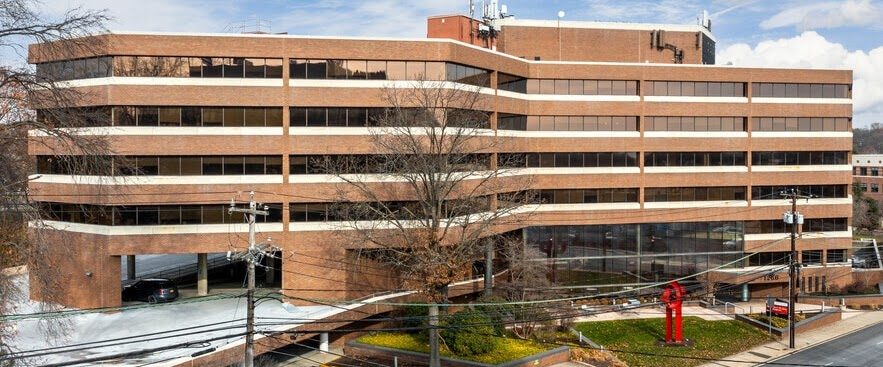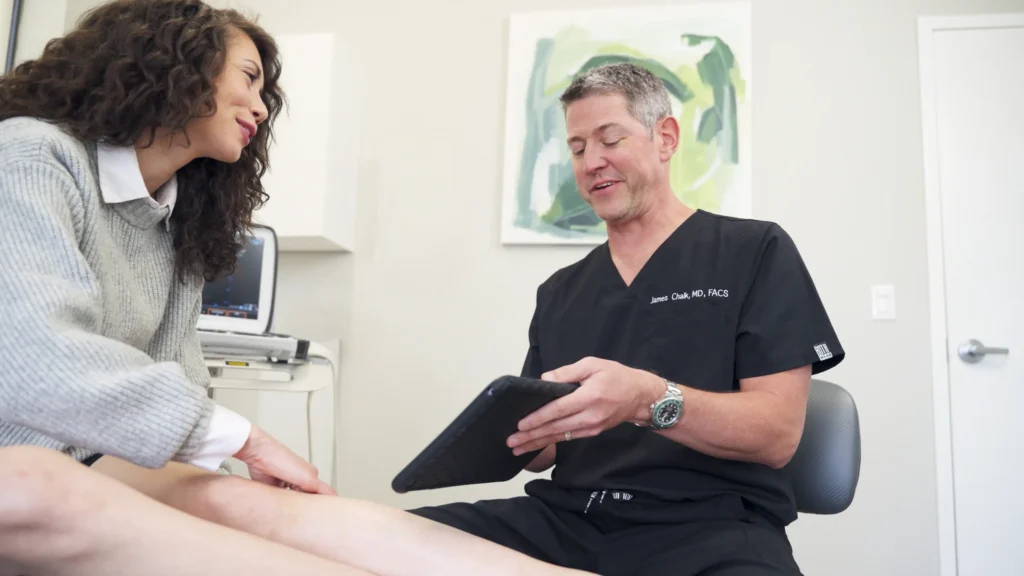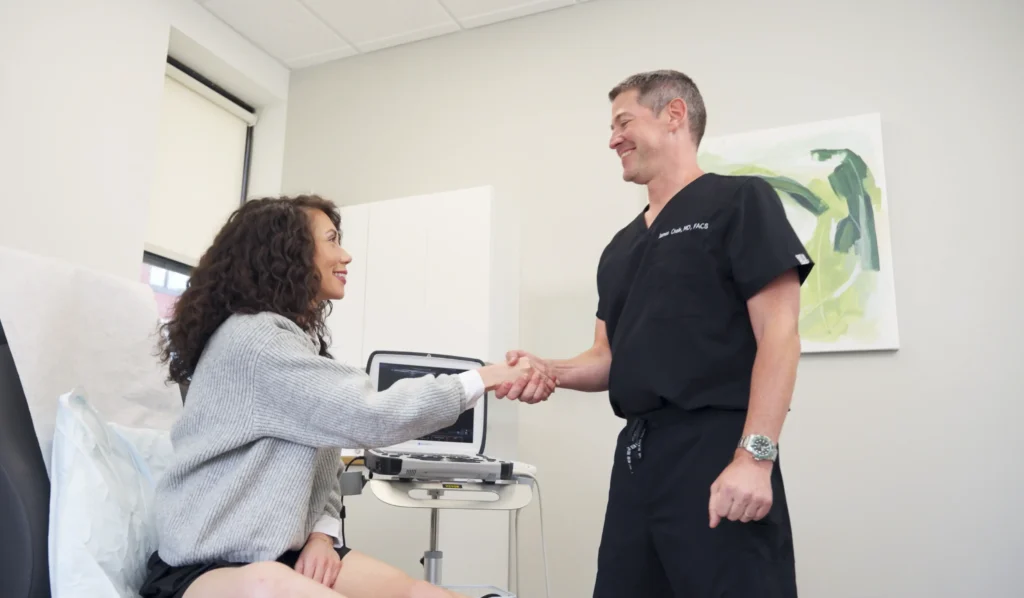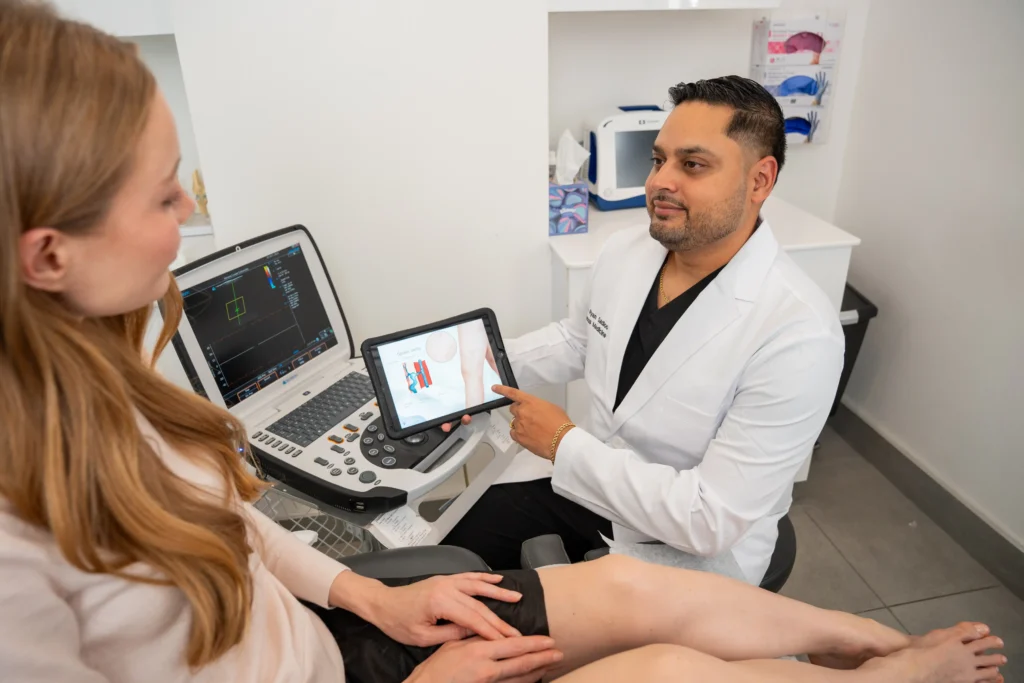All You Need to Know About the Vein Ablation Procedure
You’ve been dealing with aching legs, unsightly bulging veins, or persistent swelling. You’ve tried elevating your legs and wearing compression stockings, but nothing seems to help. Whether you’re on your feet all day or have a sedentary job, varicose veins can affect your quality of life and self-confidence. You want to get rid of varicose veins, but you don’t want to undergo surgery. The good news is that you don’t need surgery… you only need vein ablation!
At VIP Medical Group, we specialize in providing minimally invasive varicose vein treatments. Vein ablation is one of the most effective vein treatments we offer, helping patients alleviate discomfort and restore the appearance of their legs. In this guide, we’ll walk you through everything you need to know about the vein ablation procedure.
What Is Vein Ablation?
Vein ablation is a minimally invasive procedure used to treat varicose veins. The goal of the procedure is to close off the problematic veins that cause discomfort and other symptoms. When a vein becomes damaged or weakened, blood begins to pool within it, leading to the development of varicose veins. These veins are not only unsightly but can also cause pain, swelling, and even more severe complications if left untreated.
During vein ablation, your vein doctor uses heat, typically from radiofrequency energy or lasers, to seal the affected vein. Once the vein is closed, blood is naturally redirected to healthier veins, improving circulation. The body gradually absorbs the treated vein, and over time, the symptoms caused by varicose veins are significantly reduced or eliminated.
Types of Vein Ablation
At VIP Medical Group, we offer two primary types of vein ablation:
- Endovenous Laser Ablation (EVLA): This technique uses laser energy to close the vein. A small fiber is inserted into the vein, and the laser heats the vein walls, causing them to collapse and seal shut.
- Radiofrequency Ablation (RFA): This method uses radiofrequency energy to achieve the same goal. A thin catheter delivers energy to the vein wall, causing the vein to close.
Benefits of Vein Ablation
One of the main reasons patients choose vein ablation is because it offers numerous benefits compared to traditional surgical treatments. Here are some of the key advantages:
- Minimally Invasive Vein Treatment: Vein ablation is performed using a small catheter inserted through a tiny incision. This means there’s no need for large incisions or stitches, resulting in minimal scarring and faster recovery times.
- Highly Effective: Studies show that both radiofrequency and laser vein ablation have a success rate of over 95%. This makes them highly effective treatments for addressing the underlying cause of varicose veins, providing long-lasting relief from symptoms like pain, swelling, and heaviness.
- Quick Recovery Time: Most patients can return to normal activities immediately after the procedure. This is in stark contrast to vein stripping surgery, which requires a much longer recovery period. Many patients even schedule vein ablation during their lunch break.
- Minimal Discomfort: The procedure is performed under local anesthesia, so you’ll remain awake but feel little to no discomfort during the process. After the procedure, you might experience mild soreness or bruising, but this typically resolves within a week.
- Covered by Insurance: Because vein ablation is considered a medical necessity for the treatment of symptomatic varicose veins, it is often covered by most health insurance plans.
Preparing for Vein Ablation
Before undergoing vein ablation, there are a few simple steps to ensure the procedure goes smoothly.
- Initial Consultation: The first step is scheduling a consultation with a vein doctor at one of our VIP Medical Group clinics. During this consultation, we’ll perform a duplex ultrasound to assess the root cause of your varicose veins. This allows us to develop a personalized treatment plan tailored to your specific needs.
- Pre-Procedure Guidelines: Your vein doctor may recommend that you avoid certain medications, such as blood thinners or anti-inflammatory drugs, before the procedure. You may also be advised to wear loose-fitting clothing on the day of the treatment.
- Compression Stockings: Your vein specialist may recommend that you wear compression stockings before and after the procedure. These stockings help improve circulation and reduce swelling, promoting a smooth recovery.
What to Expect During Recovery
After vein ablation, recovery is typically quick and easy. Here’s what you can expect:
- Immediate Post-Procedure Care: After the procedure, your vein doctor will likely advise you to walk for 20-30 minutes. Walking helps improve blood flow and prevents complications such as blood clots. You’ll also be asked to wear compression stockings for a week or two.
- Returning to Normal Activities: Most patients can return to work and their normal activities within 24-48 hours. However, you should avoid heavy lifting and strenuous exercise for at least a week. Your vein doctor will provide specific guidelines based on your situation.
Follow-Up Visits: It’s important to attend any follow-up appointments to ensure the treated veins are healing properly and that your symptoms are improving. Duplex ultrasounds may be used to confirm the success of the procedure.
Understanding Risks and Side Effects
As with any medical procedure, vein ablation comes with some risks. However, these risks are generally minimal, and complications are rare when the procedure is performed by an experienced vein specialist.
Common Side Effects
- Mild bruising
- Swelling
- Skin discoloration
- Soreness around the treated area
Rare Complications
- Blood clots
- Infection
- Nerve damage
Most of these side effects resolve on their own within a few days to a few weeks. By choosing a board-certified vein doctor at VIP Medical Group, you’re minimizing the risk of complications and ensuring that you’re in good hands.
Request Insurance Verification
One of the most appealing aspects of vein ablation is that it’s often covered by health insurance. Because varicose veins are considered a medical condition rather than just a cosmetic concern, most insurers cover the cost of the procedure. At VIP Medical Group, we make the process even easier by offering insurance verification before your first appointment.
We also have vein treatment clinics conveniently located throughout New York, Long Island, California, Maryland, and New Jersey, making it easy to find a location near you. If you’re suffering from varicose veins and would like to explore your treatment options, contact us to schedule a consultation or request insurance verification.





